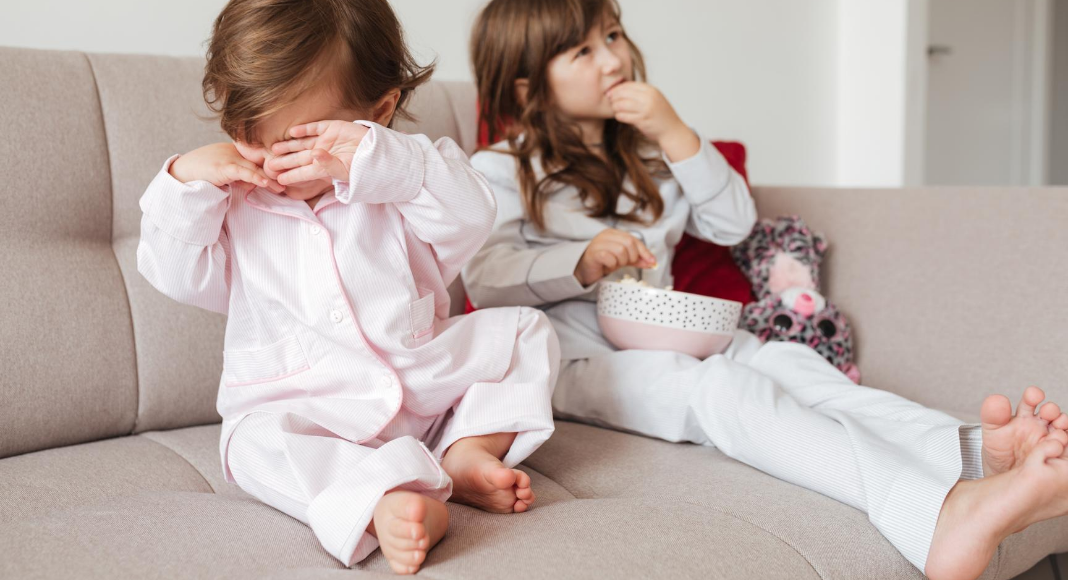 We lose our cool, yell, sometimes we slam things down, stomp our feet, and slam doors. We are the “grown-ups”, but we all do…in moments when we have had enough. Our kids do this, too. They yell, throw things, slam doors, cry, or maybe bite and hit. Big emotions are tough for children and adults to handle.
We lose our cool, yell, sometimes we slam things down, stomp our feet, and slam doors. We are the “grown-ups”, but we all do…in moments when we have had enough. Our kids do this, too. They yell, throw things, slam doors, cry, or maybe bite and hit. Big emotions are tough for children and adults to handle.
Many times, I have lost my control, and when this happens, I often fall into immediate or delayed sorrow and regret for how I’ve handled my frustration. I’m sure you have done the same as well. Unfortunately, our children look to us to learn how to handle our emotions. How can we be better for our children? We can better equip them to deal with the big emotions that will be a part of all of our daily lives.
As adults, most of the time, we are more equipped to deal with the flood of frustration than a child is. Why? We have life experiences and have learned coping mechanisms to draw upon. Sometimes these mechanisms are accepted, positive ways to handle frustrations, and sometimes they aren’t. We need to control those toxic frustrations that we often spread to others surrounding us, setting negative examples for our children.
Often times, we use quick punishments (yelling, time out, spankings) to extinguish bad behaviors. While these methods can be a quick way to stop a negative behavior, they do not always thoroughly teach our children appropriate coping mechanisms. They treat the behaviors — not the issues causing the behaviors.
Frequently, we struggle with our son, who struggles with his big feelings, often having meltdowns. We sought help from a local organization that offers child behavioral services giving parents ideas to help their children. I have also spent countless hours researching how to help my children with their emotions, and reading books on it, so I’ve learned a few things to share with you. Here are some research-based methods that professionals recommend to help your child deal with big emotions and make better choices:
Be an example of what you want to see from your child when they’re frustrated. Think out loud by saying things like “mommy is upset right now, I need to have some time in my room to cool off.” You’ll want to display appropriate coping mechanisms like taking a breather in another room, going for a walk, taking deep breaths and counting to 10, asking for big hugs, etc. Let your child know these are acceptable ways to manage emotions. We all have actions we jump to when we are upset, and children have an immature system in dealing with emotions. It’s our job to model appropriate coping mechanisms.
Let your child explain (if they’re old enough) why they are upset-encourage them to verbalize their feelings. Don’t make your own assumptions. Then, acknowledge their feelings. Imagine how angry you get when someone tells you to “just calm down”, or “it’s not a big deal”. It doesn’t feel good to anyone when their feelings aren’t validated. Let them know you hear them and connect with them. Even though you don’t agree with the behavior, you can still connect and validate their emotions. Repeat back to them what you hear them saying and why they are upset. “I hear you saying you’re mad that you can’t go to the party. I’ll bet that makes you feel left out.”
Offer an alternative or redirect them. This is the toughest part; you’ll need to resist the urge to lecture them. As in the scenario above, you might say, “I know the party is important, but we have to visit your aunt that evening. Perhaps tomorrow night you can invite a friend over for pizza and a movie?” There are many situations that will arise, so you’ll have to get creative in how to negotiate and redirect their frustration. And if your child is old enough, let him or her help think of an acceptable alternative or compromise.
Of course, there will be more serious situations that arise where you will need more stern, swift action. Remember to display appropriate behavior yourself and quickly stop the situation, such as when harm is being done or there’s a safety issue. Let them know when their behavior is not acceptable and try to remove them from the situation. Once the time is right, and they’ve cooled down some, try the strategies mentioned above.
Remember, we are teaching our children how to deal with emotions, and it will take time and patience. It is an ongoing practice, particularly with young children. Also keep in mind that as parents, we will fail time-to-time at this, but try to take a deep breath yourself before reacting so that YOU can display proper emotional coping. For more in-depth information, check out these books: No Drama Discipline, Parenting the Strong Willed Child, and Beyond Behaviors.
If you feel that there is more to your child’s behavior than normal developmental emotions, talk to your doctor and/or seek help from local child development professionals.
















